Peganum Harmala Seeds Syrian Rue Seeds
Peganum harmala L. (Zygophyllaceae) commonly known as harmala or harmaline, is an indigenous plant that is highly branched and bushy perennial herb. It is native to Mediterranean coasts of Africa, Europe, Middle East and Central Asia. It is commonly known as harmal, wild rue, aspand or esfand etc. It can reach up to 30-100 cm and mostly occurs in semi-arid rangeland, sandy and steppe areas. It is widely distributed in Pakistan, India, Europe, Tibet, North Africa and Russia.The leaves are divided into narrow segments and flowers are 5 petalled, axillary, solitary and white in colour with green veins. The flowering period starts from April to October. The fruits appears between July to November andare glabrous, 6-10 mm in diameter, deeply lobed capsules and turned red while ripening. The capsules have 3 chambers which carries more than 50 seeds. The seeds are brownish in colour, triangular in shape and 2 mm in length.The endosperm is oily. The plant is not usually grazed by animals due to its bitter taste which repel them but when pasture is sparse, some domestic animals attracted to the plant. It cause sickness and abortion in livestock if consumed therefore, it is considered as a noxious weed in many countries.
Peganum Harmala Medicinal uses
The plant possess hypotensive, diuretic, antidiabetic, analgesic, anti-inflammatory, antioxidant, anti-aging and anti-anthelmintic (to expel parasitic worms) properties. It is used in the treatment of menstrual problems, epilepsy, nervous disorders, stomachache, urinary and sexual disorders. The plant contains important constituents such as alkaloids (harmaline, harmine, peganine and harmalol), Fatty acids, volatile or fixed oils (stearic, oleic, palmitic, behenic, β-sitosterol, arachidic and linoleic acis), steroid (kryptogenin and lanosterol), flavonoids (quercetin, acacetin and kaempferol) proteins and amino acids etc. The volatile oil obtained contains α-pinene (72.6 %), trans-verbenole (3.9 %) and sabinene (2.6 %) which has said to be have soporific, ophthalmic, vermifuge and aphrodisiac properties. The leaves decoction is used in treatment of rheumatism while roots are used to kill body lice as it have parasitic action. The leaves are also pressed against wounds to cure stings and bites of scorpions, wasps, bees and dogs.
Peganum Harmala Seeds
The hot grounded seeds are applied on infected areas in the treatment of measles and wounds. They are also used in the treatment of colic, hysteria, fever, asthma, hiccough, dysmenorrhea and laryngitis. In many countries,harmal seeds are hung in in homes and vehicles to protect against evil eye. In Pakistan, the smoke from burning of dried seeds are used for warding off the evil eye. In Middle East, red dye is obtained from seeds which is further used in carpets. The extracts of seeds shows efficacy against protozoa and bacteria, therefore it is given to cattle and sheep that suffer with tick-borne parasite “Theileriahirci”. According to Dioscorides, who described in his book “De Materia Madica” that “Harmal mixed with honey, chiken gall, saffron and fennel juice is useful for weak vision”. Another folk named harmal as “Besasa” because Bes is an ancient Egyptian god that protect people against all kinds of evil. Seed smoke composition is used as air purifier, disinfectant and mosquito repellant. Its chemical composition includes, α-pinene (60.4 %), limonene (6.4 %) and styrene (4.2 %).
Some people are allergic to harmal smoke and experience headache, nausea, vomiting, confusion, respiratory depression, agitation, tremors, convulsion and hallucinations. The symptoms are generally for short duration and can be cured by a supportive therapy.
Peganum Harmala Cultivation
Peganum harmala is cultivated in fairly warm climates. It can be propagated through spreading seeds in normal moistened potting soil. Good sunlight and warm air is necessary for its germination. When the root become enough strong then the seedlings can be repotted. The plant can also germinate indoors on sandy soil. It prefers moderate water and at least 20˚C of temperature. The plant can tolerate frost and drought if once fully matured.

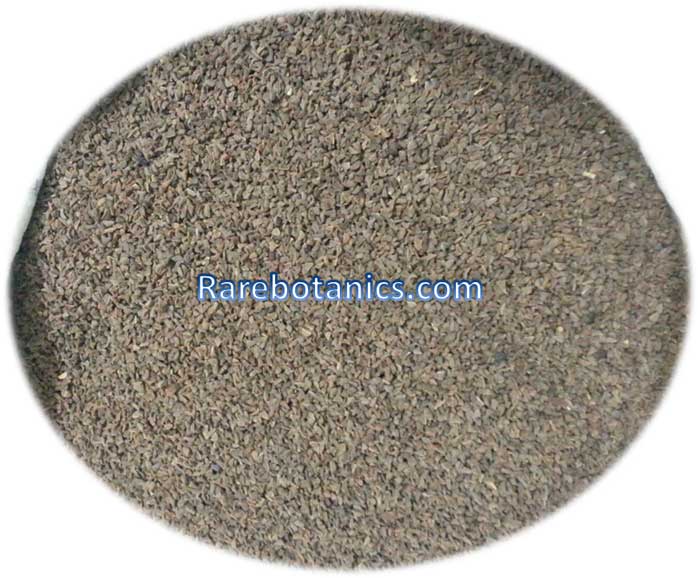
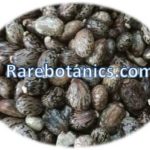
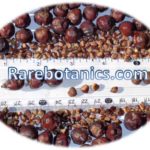
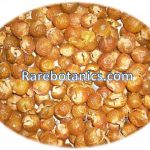
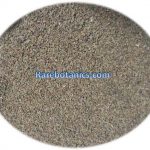
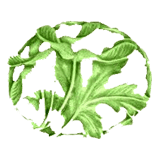
Reviews
There are no reviews yet.